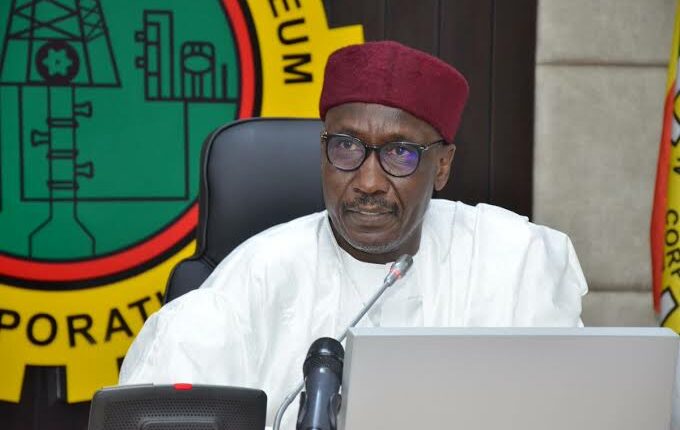Chief executive of the Nigerian National Petroleum Company Limited (NNPC Ltd.), Mele Kyari, has identified crude oil theft as the most virulent crime against the Nigerian state that must be fought with all seriousness.
As a result, he has appealed to the Economic and Financial Crimes Commission (EFCC) to help tackle the menace.
Kyari, made the appeal at an interactive session with the EFCC’s helmsman, Mr. Ola Olukoyede, which held at the NNPC Towers in Abuja on Monday.
Speaking passionately about the efforts by NNPC Ltd to eradicate corruption from its system and stem crude oil theft and pipeline vandalism, Kyari contended that going by the volume of oil stolen daily and the brazenness with which the perpetrators operate, crude oil theft was the most humongous and virulent economic crime in Nigeria that must attract the attention of the EFCC.
“As we continue to do our best to deepen transparency and stamp out corruption from the system, there is one big challenge that you will need to help us with, Mr. Chairman. That challenge is crude theft. It fits into everything you have said – the people, the asset, the opportunity, and the absence of deterrence.
“We have deactivated 6,409 illegal refineries in the Niger Delta region. Today, we have disconnected up to 4,846 illegal pipes connected to our pipelines, that is out of 5,543 such illegal connection points. That means there are a vast number of such connections that we have not removed.
“These things don’t just happen from the blues. They happen in communities and locations we all know. As we remove one illegal connection, another one comes up. It is sad, Mr. Chairman.
“This kind of thing does not happen anywhere else in the world. When we say illegal connections, they are not invisible things, they are big pipes that require some level of expertise to be installed. Some of them are of the same size as the trunk line itself. No one would produce crude oil knowing fully well that it is not going to get to the terminal. That is why nobody is putting money into the business. So, you can’t grow production.”





